
And then there were two
01.03.25
Mark Perryman writes of Rick Buckler and the legacy of The Jam as a three-piece he leaves behind

There's not many bands that are a three-piece. The classic line-up a drummer with a frontline of vocalist, lead and bass guitarists, or sometimes, as with The Clash three guitarists one, in their case Joe Strummer, also on lead vocals duty. Fancy dan additions might include keyboards, brass section, backing vocals.
The Jam were different. Rick Buckler on drums, Bruce Foxton playing bass, Paul Weller lead guitar and vocals. They lasted together a mere five years, 1977-82 but for a generation born into music-loving by the punk era Rick, Bruce and Paul have been part of our soundtrack of musical memories ever since.
With the terrible February news that Rick after a short illness has passed away now there are two. In a wonderful tweet Guardian journalist and huge Jam fan John Harris summed up what him and his fellow fans have lost:
"Rick Buckler did what the best drummers do: served the song, and put his mark on all of them. Examples abound, but here are a few: In The City, All Around The World, the peerless live version of It's Too Bad, Thick As Thieves, Eton Rifles, Scrape Away, Beat Surrender..."
Rick was no Keith Moon, Cosy Powell or Ringo Starr, he was almost as invisible off stage as he was on it, tucked behind his drum kit. But the pounding percussive rhythm to the songs John picked out, and many more, would be every part of what we hummed along to, shouted out the choruses and made our dance moves for as Bruce's hypnotic bass lines and Paul's vocals painting musical and verbal pictures of our imagination.
The Jam, despite Paul Weller's very obvious much higher profile, when they were together, when he left to form The Style Council, and his very successful solo career ever since, were and always will be a threesome.
The split in 1982 left Bruce and Rick feeling more sad and disappointed than bitter and twisted yet a reunion had never been mooted nevertheless there was a genuine warmth from Paul on hearing the news of Rick's sudden death for what his drumming had provided for The Jam.
"From our rudimentary beginnings the band evolved into the powerful force that it became. Rick's evolution as a drummer, was such a vital part of that."
Looking back almost 50 years, goodness if that doesn't make those of us who were there at the start feel old, my first live sighting of The Jam was their Friday night headline slot at Reading Festival 1978 , The Jam although always bracketed with Punk were testament to this moment taking multiple forms. And in large part this was its strength.
That Reading Festival of my fond Jam memories is mixed with the same weekend of Sham 69, poor Jimmy Pursey forced once more to evict that section of his fanbase that were National Front or worse from the stage . Sham and Motorhead fans raining down on each other the cans and bottles thrown. Yet Sham 69 and The Jam both labelled as 'punk'.
From its very beginnings, another early memory, 1976 and transfixed by The Sex Pistols' Johnny Rotten and Steve Jones with various members of 'The Bromley Contingent' (including if I remember correctly Siouxsie Sioux) heaping expletives on presenter Bill Grundy live on his early evening TV show Today. I roared them on from the family sofa. Away in the kitchen, my parents fortunately unaware of my antics.
The anarchic Sex Pistols also flirted with Nazi chic, as did the otherwise effortlessly stylish Siouxsie Sioux. The Clash and The Tom Robinson Band wore their politics on stage and off. It is almost impossible to explain the huge statement made when Tom blasted out ' Sing if You're Glad to be Gay' as a punk anthem. Sham 69 and the Angelic Upstarts were more early versions of Oi than punk but came along for the ride. The Stranglers a supercharged but frankly conventional rock band.The Damned? A rousing mix of punk and thrash rhythm and blues. The Buzzcocks and A Certain Ratio mainstays of the Manchester scene. Elvis Costello link man from punk to what became known as 'new wave.'
While sharing the same label, punk, there was little or nothing musically this wonderful lot had in common. Except what they pitted themselves as an alternative to. My mid 1970s O Level classroom was filled, please excuse the gender determinism here but it's how I remember my classmates, by the girls teenybopping over the Bay City Rollers and serious-minded boys listening to Genesis, Pink Floyd and Yes. Punk in all its creative diversity stood against all this. It was DIY, independent, anti-corporate takeover, as much local as global, and eff you if you don't like it.
The Jam fitted perfectly with all this. Schoolboys, Bruce, Paul and Rick, who with various others since 1972 had shared the same dream of being in a band , rehearsing, sharing influences, writing their own songs , playing local clubs. In Woking, deep in the Surrey commuter belt. Managed by Paul's dad John. And when Punk burst into life to top the charts those teenage dreams made real, a major record label signs them on the dotted line of having a share of the commercial action.
But they weren't an entirely natural fit. They looked, and sounded, like mods not punks, or even new wave. However this was a reinvention of the music, fashion and culture that had inspired three Woking teenagers rather than the straight copy of Mod revivalists The Secret Affair, The Chords, Purple Hearts and others. A reinterpretation that as the albums and singles progressed increased in political messaging to dance to. Not, however good, of the anthemic kind The Clash and Tom Robinson Band produced, their's instead wrapped in lyrical, and musical subtlety. Down in the Tube Station at Midnight a testament of the menacingly violent mix of masculinity, drink and far right politics. Eton Rifles class war the music-mix, when Etonian old boy David Cameron who'd been in the cadets there described it as one of his all-time favourite songs Weller's unforgettable response: “ It wasn’t intended as a fucking jolly drinking song for the cadet corps.”
The Jam came to an end with their very final release Beat Surrender which both revisited the manufactured misery they had angrily depicted on their second album in The Modern World . Their retort? 'Don't have to explain myself to you, I don't give two fucks about your review.' But also gloriously played out with their response, the anger of hope as misery's downfall, that they had made The Jam's mission to provide.
"Come on boy, come on girl
Succumb to the beat surrender
All the things that I care about (are packed into one punch)
All the things that I'm not sure about (are sorted out at once) "
It's almost impossible to read those lines without the drumbeat growing in rhythmic intensity and irresistible volume in our heads. Rick, we will never forget.
Mark Perryman is the co-founder of Philosophy Football
The last few of the limited edition Rick Buckler memorial T-shirt is available from Philosophy Football here
This Land is (still) Your Land
22.02.25
Mark Perryman celebrates the 85th anniversary of Woody Guthrie's anthem

On Sunday, 23rd February 2025, it will be the 85th anniversary of Woody Guthrie writing his anthemic This Land is Your Land, This Land is My Land. Ever since, it has been sung out loud and proud as an American – and global – song of resistance.
In February 1940, the United States hadn't yet entered World War Two – that wouldn't come for almost another two years following Imperial Japan's deadly air attack on the US naval base, Pearl Harbour. Nazi Germany was in the process of taking all of Europe by blitzkrieg. The Soviet Union had been quelled by the shameful and treacherous Ribbentrop-Molotov pact.
Whilst US President Roosevelt's sympathies were with Churchill and with the British armed forces leading the resistance both in Europe and South-East Asia, American support was purely economic, consisting of transactional lend-lease arrangements which were entirely of benefit to US business.
American public opinion was for non-intervention, appeasement – but for a section of the American right it went further. Just like the Daily Mail’s notorious front page 'Hurrah for the Blackshirts', there are many in America who resent being reminded that a year previously to Woody penning his song 20,000 America Nazis had filled the famous Madison Square Garden. They sieg heil'd their American support for Hitler to a huge backdrop of George Washington, squeezed between two equally large swastika flags.
Such was the context of This Land Is Your Land. In Mike Marqusee's brilliant book Chimes of Freedom: The Politics of Bob Dylan's Art (updated and expanded as Wicked Messenger:Bob Dylan and the 1960s). Mike provides the details of Woody's authorship including the missing lines 'purged' from the more sanitised version that has become popular ever after:
"A big high wall there that tried to stop me
A sign was painted said: Private Property"
and
"One bright sunny morning in the shadow of the steeple
By the Relief office I saw my people -
As they stood hungry, I stood there wondering if
This land was made for you and me."
One can scarcely imagine JD Vance, adopting such lines as his Hillbilly Elegy theme tune. And therein lies, despite their tuneful exposure by Woody and in our time by others too, the dangerously successful falsehoods, of the populist right's appeal, Trumpian and Faragist versions.
Mike Marqusee is much missed by many including myself. He was that very rare kind, a public intellectual, a hugely creative political organiser – at the height of opposition to the Iraq War only Mike would have the idea and the ability to organise an Iraq v USA football match, with Philosophy Football (of course) providing the kits. And he was a gloriously gifted writer who was as much at ease writing about Dylan, his Jewish identity, Muhammad Ali and most of all his quixotically American love of cricket, as about Labour Party politics.
It is his take on the latter that helps explains Mike's disavowal of one particular accolade This Land is often accorded:
'"The song combines a sense of longing and belonging, and has been cursed with the sobriquet of the 'alternative national anthem'."
By political inclination I'm a pluralist. I simply have no interest in a political culture founded on the pressing need for all of us sharing the same label, 'left' or Labour or any other, to entirely agree with one another and exclude those whom we don't. In my experience I learn just as much engaging with those I don't share wholehearted agreement with as those whom I do. I would often debate with Mike his rejection of the national popular, in particular Englishness, his position he waggishly entitled 'Anyone but England.' Yet despite our disagreement his position was always far more illuminating, instructive than Sir Keir's entirely performative 'progressive patriotism,' never to be articulated minus a Union Jack draped somewhere or other in the camera shot.
However, this rejection of the national popular, if you like This Land as an 'alternative national anthem' can often lead to a broader rebuttal of a Gramscian (yes, yes Philosophy Football do a Gramsci T-shirt too) politics that focuses on popular culture rather than the kind of spaces varying parts of the left are considerably more comfortable in, from the electoral arena via the picket line to the rarefied world of planet placard, as an absolutely central site where ideas are contested and changed. A focus that recognises and doesn't downgrade the meaning given by many to their nation being key to this. In this sense the very special power of This Land is that it is both, and at the same time, universal and very distinctly American.
And it is this mix, the national, the popular and the radical that framed not only Woody but also future generations who sang in their different ways of who their land belonged to. Nina Simone, Bob Dylan and Joan Baez via Patti Smith, TheClash, The Specials andBilly Bragg to new generation minstrels of change Grace Petrie, Joe Solo and Calum Baird with plenty more where that rebel-rousing lot came from. Now that's what I call a soundtrack of however revolutions per minute takes your fancy.
Mark Perryman is the co-founder of Philosophy Football
The 85th anniversary This Land Is Your Land T-shirt is available exclusively from the self-styled 'sporting outfitters of intellectual distinction' akaPhilosophy Football here

Happy 80th Birthday Bob Marley
01.02.25
Philosophy Football's Mark Perryman celebrates the meaning of Bob Marley

As self-styled 'sporting outfitters of intellectual distinction' Philosophy Football we've made our name by going in search of philosophical quotes that explain the meaning of football and turn them into T-shirts, name and squad number on the back. Unique? We like to think so, our first, existentialist and Algerian international goalkeeper Albert Camus, swiftly followed by Gramsci.
Imagine our joy therefore when we found out that Bob Marley had waxed lyrical about this love of the game: " Football is a part of I when I play the world wakes up around me.' Into production ahead of Bob's beloved Jamaica making their World Cup debut at France '98 we made him our number eleven. Club side? As a man of the people we reckoned Bob might fancy turning out for Kingstonian FC, not Jamaica's capital but south London's premier non-leaguers.
The shirt proved instantly popular, a tad too popular. The Bob Marley Foundation got to hear about it and sent us a writ for breach of copyright demanding it be immediately withdrawn. We had become kind of used to this. Not many T-shirt companies have been sued by Eric Cantona, Hergé of Hergé's Adventures of Tintin fame and now Bob Marley! But when we explained what we were about, two football fans with the idea of mixing our love of the game with our interest in ideas and design, plus in those days wildly ambitious festivals on London's South Bank celebrating the global culture of football, the foundation were so impressed they insisted for Bob's shirt we remove our legal get-out of jail description ' strictly unofficial' and make ours The Official Bob Marley Football Shirt. Blimey were we chuffed, not 'alf.
Next Thursday, 6th February, would have been Bob Marley's 80th birthday, sparking memories of howe we described his place in our textiled squad. Playing of the ball on the grass, no dope far out on the wing, climbing high as a kite to catch the long ball. To celebrate the birthday, the shirt has been re-introduced into our unique line-up to rejoin Camus, Gramsci, Sartre and others who prefer to play the game deep.
But this is a moment also to reflect on the meaning of Bob Marley and others like him. The writer and activist David Widgery had a neat way of describing his politics as against miserabilsm:
" There is a real danger of getting too depressed about the apparent triumph of a particularly tawdry and irresponsible sort of finance capitalism and the state of the labour movement and the cowardice and lack of vision of its leadership. But I'm very against miserabilism."
David wrote those words at the peak of Thatcherism reinforced by the flag-waving aftermath to the 1982 Falklands war. Labour was drifting under the leadership of Neil Kinnock. The latter having led CND marches promptly dropping any such commitment once leader. The miners in 1984 suffering a catastrophic defeat. And this sorry lot of the early 1980s was just for starters. David Widgery was 'against miserablism' because what precisely does being miserable achieve?
Widgery had form on the subject. He was one of the architects of the greatest fusion of a popular agitational politics with a popular joyful music, Rock against Racism. And he had no time for those he would otherwise agree with politically who couldn't grasp the significance:
" Marxists who turn socialism into something as obscure as particle mechanics."
As we danced to The Clash, Buzzococks, Tom Robinson Band, Elvis Costello, X-Ray Spex, Stiff Little Fingers the punk mainstays of Rock against Racism mixed with UK reggae's Steel Pulse, Aswad, Misty and Roots, Matumbi the musical-political combination was natural, vital and most of all wonderfully fun.
Daniel Rachel's superb book Walls Come Tumbling Down chronicles how Rock against Racism segued into 2 Tone, a musical movement that didn't have to spell out A-G-A-I- N-T- R-A-C-I-S-M it was fundamental to the music, the fashion, the line-up of everything about 2 Tone and in particular label mates The Specials, The Selecter and The Bodysnatchers.
Bob Marley symbolises the potential but also the pitfalls of an anti-racism we can dance to such as this. In the late 1970s Chelsea had amongst its fanbase a fascist hardcore who when who whenwhen theSkaanthem The Liquidator was played over the Stamford Bridge PA system as the team ran out would loudly insert into that pregnant pause in the opening bars 'British Movement boom boom' an outfit for those who found the Nazi National Front a tad moderate. An anti-racism without musical accompaniment is entirely miserabilist. But music, the same goes for football,that doesn't make the connection between a multicultural soundtrack or team line-up and the society both exist alongside has a nasty habit of leaving any meaning on the dancefloor or pitch. A territorial anti-racism that is all about liking the music, the player but asfor the rest who share his or her skin colour, religion, country they came from to our's, leave it out. Or words, actions a damn sight worse. How that connection is made in a manner that is popular, connective rather than waving a placard with a slogan that simply tells those whom the intention is to reach simply they're wrong, wrong, wrong won't do it. Neverhas, never will.
Jammin' is what Bob Marley excelled in. Never for one moment did his music make us miserable. He lifted our sights to the possible which seemed all but impossible. Oh, and he understood that at it's best our much-fabled 'people's game' had every potential to do the self-same. In contrast to the activist-speak sloganising of ' Stop this, Fight that, Smash theother' Bob Marley's words ' I believe racism, hatred and evil can be healed with music' positions popular culture in any contest of ideas not as a sideshow but absolutely central. A practical understanding of how to reverse the current popular drift to increasingly hateful times, and better still one we can dance to. Thanks for everything Bob Marley and many happy returns.
Mark Perryman is the co-founder of Philosophy Football
Philosophy Football's Bob Marley T-shirt is available here

Twelve Books of Christmas
21.12.24
Mark Perryman provides our gloriously eclectic annual seasonal reading selection
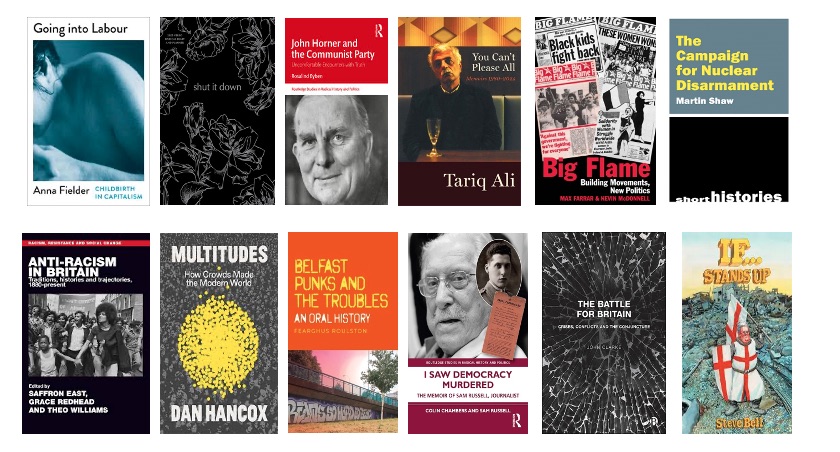
OK twelve books in twelve days competing for attention with the holly and the ivy if not peace and goodwill, and all before Hogmanay descends upon on us might too much for even the most avid bibliophile. So more of a guide for what to look forward to snapping up by way of the means of post-seasonal intellectual recovery ready for what 2025 has in store for us.
1. Going into Labour

' A Marxist analysis of childbirth and birth care' just the ticket for a day marking the most famous incident of giving birth in human history. A manger, three Kings, assorted shepherds with sheep, all lit by a star, and God knows (well if anyone knows he/she should) what up above, but not a gynaecologist in sight. Anna Fielder provides a unique insight into the everyday experience of what for many others, not just Mary and Joseph, will be the most momentous event of their lives. Yet framed by capitalism, colonialism, misogyny not for all the pleasure it should be.
From Pluto books here
2. Verso Radical Diary and Planner 2025
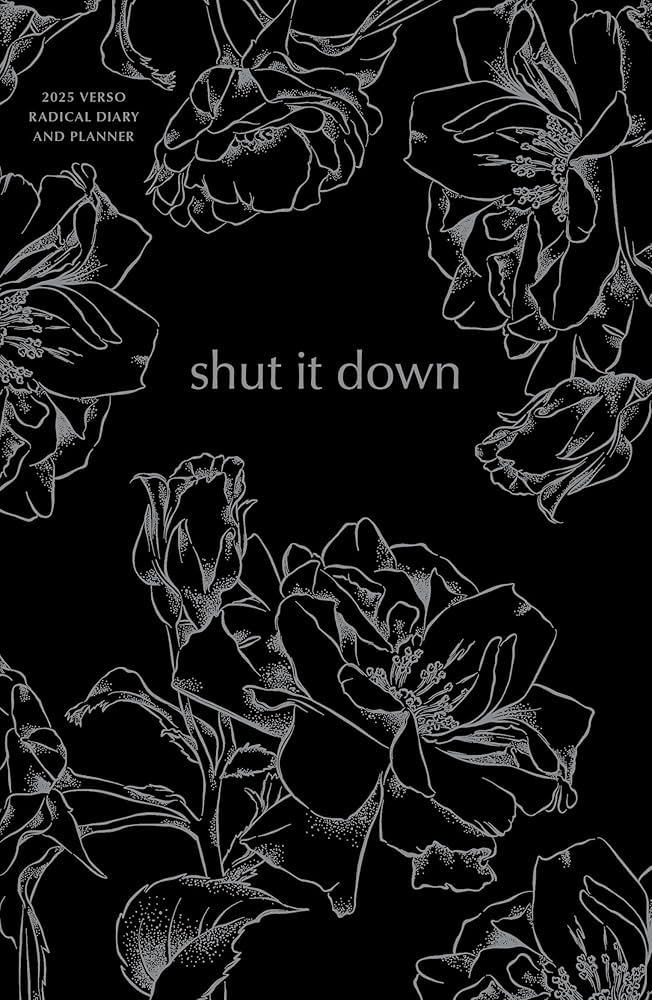
Christmas Day out of the way, leftovers to mop up, never-ending pile of mince pies to tuck into, Christmas wrapping-paper sorted for recycling. Only one task remaining for Boxing Day, for those with a life not entirely taken over by their smartphone to organise every sentient minute of the day, order a 2025 diary. And only one choice for any self-styled organic intellectual, Verso's. Combining the stylishness Verso is rightly renowned for with a daily and monthly digest of history and insights to provide a 365-day guide to the radical and revolutionary. One missing mind, 13 October 2025, the centenary of Margaret Thatcher's birth. And yes there will be a Philosophy Football Centenary mug specially designed for us by Steve Bell. All together now, ' Maggie, Maggie, Maggie. Out! Out! Out!
From Verso books here
3. John Horner and the Communist Party: Uncomfortable Encounters with Truth
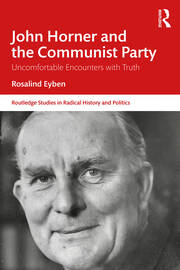
The 2024 General Election was marked by Jeremy Corbyn elected as an independent left MP despite everything the Labour Party threw at Islington North to stop him. And they did the same in Brighton Pavilion, throwing everything at it to take the seat back from The Green Party, and failing there too. Add in the four Muslim independent MPs plus three more Green MPs and this is quite a bloc. Rosalind Eyben's superb book tells the story of an earlier era of left-of-Labour hope. The Communist Party of the 1930s, the Popular Front, fighting an anti-fascist war at home, solidarity with the Red Army on the Eastern Front away. Willie Gallagher and Phil Piratin elected Communist Party MPs as part of Labour's 1945 landslide. Hopes dashed not much more than a decade later by Stalin's 1956 invasion of Hungary. All told via the life of John Horner, Communist, creator of the modern Fire Brigades Union when it was needed more than ever before, the Blitz, and Rosalind's father. The maxim ' the personal is political' could have been written for this most special book.
From Routledge here
4. You Can't Please All: Memoirs 1980-2024
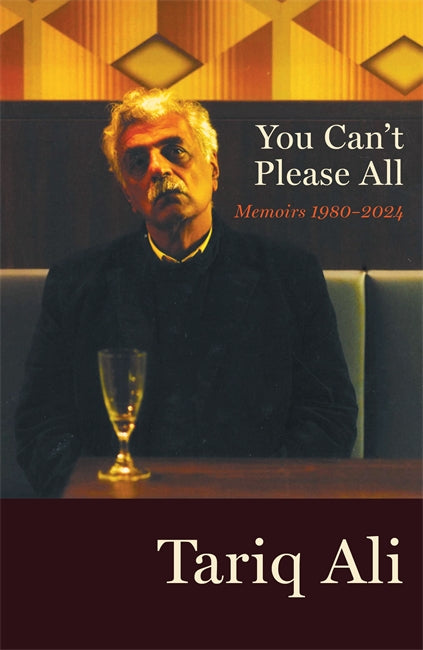
2024, follows 1945, 1964 and 1997 as a year of a Labour landslide. Yet a decent chunk of the Left while happy to bid a none too fond farewell to 14 years of Tory (with a little help from Nick Clegg) 'progress' aren't exactly dancing in the streets, marching morelike. Tariq Ali has been a towering figure of this outside left for the best part of 60 years. His memoir of the 1960s Street Fighting Years has recently been reissued to accompany Tariq's new post 1968 memoir, You Can't Please All. A spellbinding testimony of the revolutionary expectations that framed a generation via Vietnam, Black Power, the Prague Spring. And how they helped some stay the course through what the ensuing almost half century threw at his Generation Left. A vital read for all who seek to stay the course, but especially today's Generation Left formed by the 2010 University Tuition Fees protest movement, 2015-19 Corbynism and 2023- Gaza, as they pass through their thirtysomethings.
From Verso books here
5. Big Flame: Building Movements, New Politics
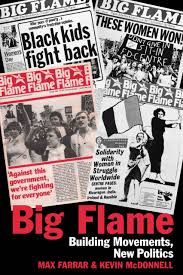
There is widespread expectation that the New Year will be marked by Jeremy Corbyn launching an as yet without a name new party of the Left. Wags may suggest we've had one of those before, Tariq Ali's own International Marxist Group just one of the 57 varieties of, before in time-honoured fashion splitting to create even more varieties. Jeremy will be hoping against hope to avoid the pitfalls of previous efforts, but one deserves some closer study than an otherwise record of unmitigated failure. Max Farrar and Kevin McDonnell retell the story of 'Big Flame' this most creative effort to combine the personal, the local and the political in a formation that was part party and part movement. If Jeremy's outfit can achieve that combination it might, just, be on to something.
From Merlin Press here
6. The Campaign for Nuclear Disarmament

A lifetime ago I was a student at Hull University. This was 1978-81 at the height of opposition to the renewal of Britain's nuclear deterrent (sic) with Trident submarines and the basing of US Cruise missiles at Greenham and Molesworth. Martin Shaw was a lecturer at Hull and inspired so many of us with his vision of, and arguments for, a nuclear weapon-free Europe. Despite CND's decline he remains one of the best thinkers for what a broad, imaginative and effective movement looks like. Making his history an essential read at this time of precious little peace and not much goodwiil.
From Agenda Publishing here
7. Anti-Racism in Britain: Traditions, Histories and Trajectories, 1980 - present
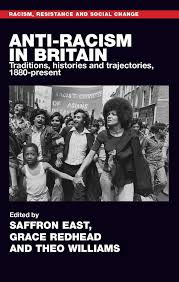
Edited by Saffron East, Grace Redhead and Theo Williams their book is a most timely historical survey of anti-racism in Britain. Combining a richly imaginative thematic approach with the historic Anti-Racism in Britain ranges over the colonial legacy of Empire via the politics of emergent diasporas to the contestation around 'multiculturalism'. An essential read with the current across-the-political-spectrum stirring of anti-immigration sentiment. Just one request to the publisher tho', this title deserves a cheaper paperback edition, pronto.
From Manchester University Press here
8. Multitudes
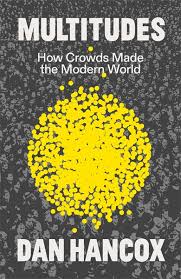
Vietnam, Nuclear Disarmament, Iraq, anti-racism, and currently Gaza, all, and more, have each sparked huge protest movements. Dan Hancox's hugely original Multitudes places the simple and timeless exercise of marching for or against come what may in a quite different context, the making of a crowd. The convivial and the political are too often alien to one another but for good, or bad, when they coalesce the crowd becomes a movement. A book that lands somewhere infinitely richer than Planet Placard. Hurrah!
From Verso books here
9. Belfast Punk and The Troubles: An Oral History
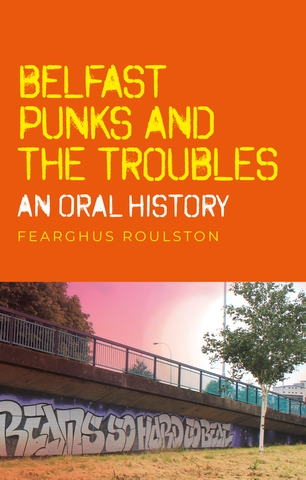
To brighten the seasonal political mood, the sight of the lead singer of 1970s Northern Irish Punk Band The Undertones, best known hit a heartfelt tribute to adolescent boys' masturbation Teenage Kicks, emerging as the effective leader of the movement against inland and coastal waters pollution. Who would have thought when we were pogoing away to Feargal Sharkey belting out 'Get teenage kicks right through the night, all right' he'd end up being the eloquent spokesperson for the unanswerable case to renationalise the water boards. Poster boy of the counterghemony? Feargal fits the bill, perfectly. And to understand how, and why, Fearghus Roulston unravels the culture of late 1970s, in the words of another band of the period and place, Stiff Little Fingers, Alternative UIster. Sus-Sus-Suspect Device.
From Manchester University Press here
10. I Saw Democracy Murdered: The Memoir of Sam Russell, Journalist
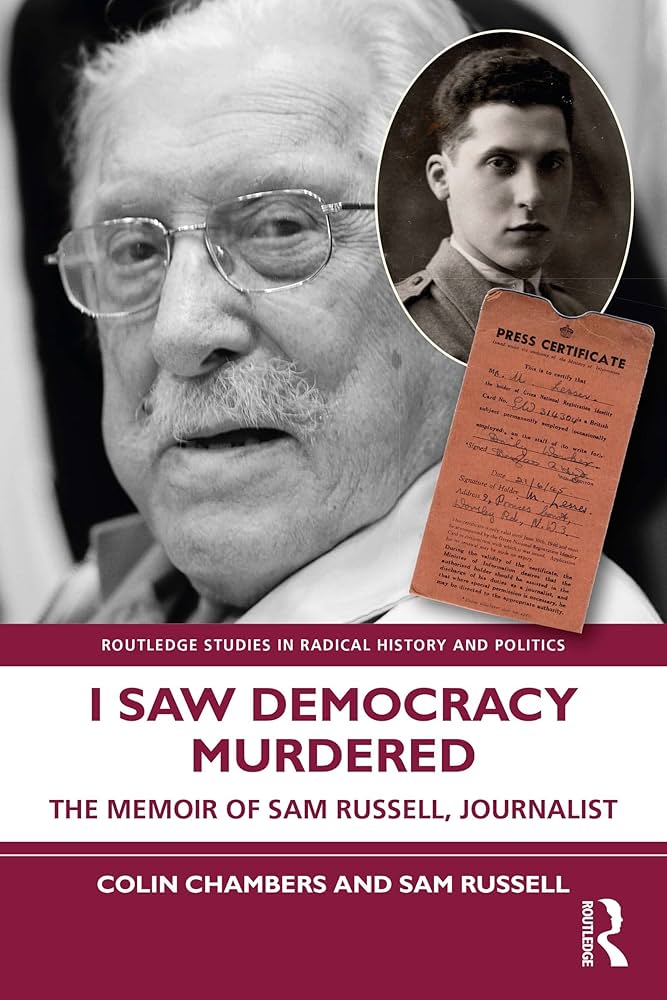
The inspiration for Philosophy Football's Dissenter range of T-shirts in large part came from the 1930s Popular Front against fascism, and in particular the International Brigades who fought to defend the Spanish Republic. It was Sam Russell who advised us on our designs and would speak at our events to honour and celebrate the Brigaders. It is almost unimaginable the idea that civilians with no military training woud travel to Spain defying border controls and arrest to take up arms. George Orwell the most famous who did so. The biggest sijngle contingent of the International Brigades British Battalion? Welsh miners. Sam's memoir, co-written with Colin Chambers, tells his own fascinating story of the impact being an International Brigader had on his politics, his journalism for the Daily Worker and Morning Star, the shaping of his anti-stalinist communism.
From Routledge here
11. The Battle for Britain: Crises, Conflicts and the Conjuncture

The beginning of the idea that burst into becoming Philosophy Football in October 1994 came in the late 1980s from the magazine I was working for back then Marxism Today and our wannabe hegemonic project that combined ideas with, yes T-shirts. 'Central Committee Outfitters', a name almost as good as ours! And my co-founder, Hugh Tisdale, followed a not entirely different trajectory. When I first met Hugh he was the designer of Democratic Left's (the post-1989 short lived successor to The Communist Party) fortnightly newspaper New Times. So what a wonderful surprise package of ideas to read in John Clarke's new book, applying the conceptual analysis John first pioneered with the much-missed Stuart Hall to the present, or as John and Stuart would teach us the 'conjuncture'. An incredible intellectual treat to start the year.
From Bristol University Press here
12. If... Stands Up

Our Five Star pick for a read to start 2025 is Steve Bell's If... Stands Up. Part collection of Steve's final (lets hope not) five years of his If... cartoon strip and part diarisation of his appalling treatment by the Guardian for whom he'd provided both If.. and comment page cartoons for 42 years. The cartoon he was got rid of for was about Gaza, the Guardian editor deemed it anti-semitic, a charge Steve refutes in the most effective way imaginable: "As to the truth of whether my fatal cartoon was actually antisemitic or not. When the Israeli cartoonists' association asked that very question, and took a vote on it, that vote was unanimous: it was not. And I will take that opinion over that of a gaggle of Guardian editors any day of the week." And in their ill-gotten cause those same editors have replaced Steve's artistic sharpness on the comment pages with the effortlessly bland while If... hasn't been replaced at all, these hapless editors discovering, too late, it's irreplaceable. Never mind, on p181 we were delighted to read " My friends at Philosophy Football have helped keep me sane, as well as active, by suggesting more and more daft merchandising ideas". To which we can only add, happy to oblige Steve!
From Verso books here
Philosophy Football's daft Steve Bell merchandising ideas from here
Note Almost all book links in this review offer special discounts. None of these links are to Amazon, if you can avoid giving money to a tax-dodging company that seeks to prevent their employees from joining a trade union please do so.
Mark Perryman is the co-founder of the self-styled 'sporting outfitters of distinction' aka Philosophy Football
Labour Gains, and Pains
20.09.24
A unique reading guide provided by Mark Perryman to the hopes, and fears, of what this Labour government might achieve

04.07.24 a Labour landslide of historic proportions. We can argue the toss about turnout, vote share, the rise of the Greens, independents taking Labour seats but a Labour win is a win, and perhaps more joyously a Tory defeat, a defeat. Hurrah!
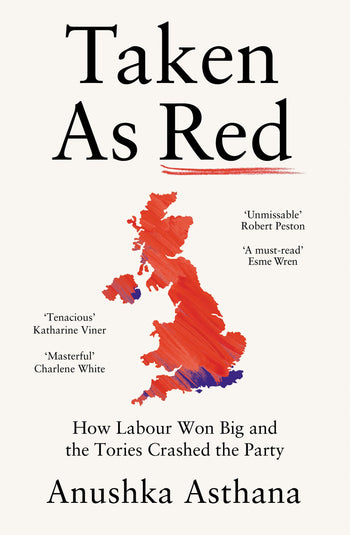
For an instant account of Labour's campaign, look no further than Taken as Red: How Labour Won Big and the Tories Crashed the Party by Anushka Asthana. The access and contacts via Anushka's role as ITV's Deputy Political Editor and prior to that Chief Political Correspondent on The Times opened almost every door imaginable. Readers will have differing views what the many campaign revelations tell us about Keir Starmer's Labour, all will find them spellbindingly interesting!
Of course over its history Labour has spent considerably longer in opposition than in office. For those of a certain vintage the past 45 years scarred in our memory: Wilson/Callaghan 5 years, Thatcher/Major 18 years, Blair/Brown 13 years, Cameron (with a little help from Clegg)/ May/Johnson/Truss/Sunak another 14 years. Add it all up that's 32 years of Tories vs 18 years of Labour. So it seems appropriate to start with Mark Garnett, Gavin Hyman and Richard Johnson's Keeping the Red Flag Flying: The Labour Party in Opposition since 1922. Quite how 'red' that flag has been for the best part of a century readers will no doubt argue the toss over.
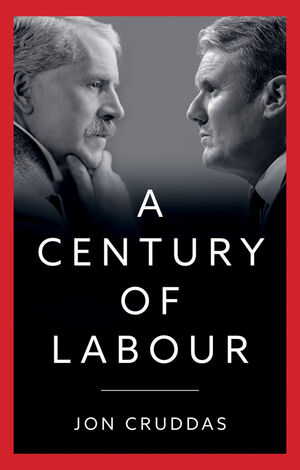
To help settle that never-ending argument look no further than A Century of Labour by Jon Cruddas, marking the centenary of the first Labour government,1924, with an unashamedly partisan account of the party's record when in power ever since. And written by the major figure of the short lived post-Blair 'soft left' the absence of which in the Starmer era has much weakened Labour's well-worn aim to be a 'broad church'. A shorter time span, but one more familiar to most readers, is admirably covered by Patrick Diamond's The British Labour Party in Opposition and Power 1979-2019: Forward March Halted? Though what would the much-missed Eric Hobsbawm, author in 1978 of the original The Forward March of Labour Halted? have made of the Miliband-Corbyn-Starmer years?
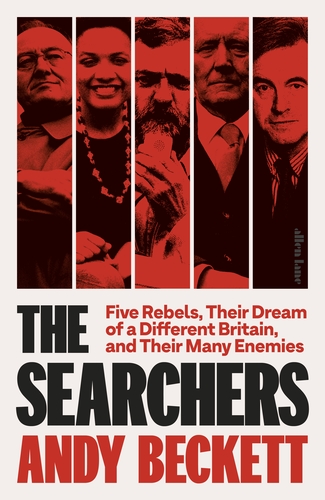
Instead of a broad party Labour has become increasingly polarised with the Labour Right ruthlessly suppressing its opposite number, the Labour Left. Tony Benn, Ken Livingstone, Diane Abbott, John McDonnell and Jeremy Corbyn collectively, the badge 'hard left' worn by all 5 with considerable pride. A tendency that post-Corbyn has gone the same way as the soft left, bordering today on extinction. Andy Beckett tracks the evolution of this tendency through the years of growth, the 1970s framed by the victorious 1972 and 1974 Miners strike and the emergence of Bennism in When the Lights Went Out. And he followed this with Promised You a Miracle the early 1980s reign of Thatcherism triumphant, the Falkands War, the end of the Bennite insurgency and a hapless Labour Party led by Michel Foot. In his new book The Searchers : Five Rebels, Their Dream of a Different Britain, and Their Many Enemies Andy revisits the beginning, middle and end of this history-in-the- making to bring it bang up to date and makes a compelling case for what the party loses when the hard left, from Benn to Corbyn, forced into involuntary absence. A left that whatever its faults, this would be the subject of another book, mixes heady idealism, dogged determination and more fresh thinking than they are often given credit for.
Diane Abbott's memoir A Woman Like Me is an absolute testament to what Labour loses when this narrowing goes unchallenged, recognised across Labour's spectrum with the breadth of resistance to Keir Starmer's ill-conceived plan to ban her from standing in the 2024 General Election. And a book with a rich vein of humour, intended or otherwise. Read Diane's account of her romance with Jeremy Corbyn and just try to stop yourself laughing out loud!
A new generation of thinkers and writers who orient around Labour manage to combine critique with an unwillingness to write off the party in government as an agent of change for the better. Futures of Socialism: 'Modernisation', the Labour Party, and the British Left, 1973-1997 by Colm Murphy expertly tracks the evolving, and sometimes competing, debates as Labour shifted over the course of two and a bit decades from The Alternative Economic Strategy to the abandonment of Clause Four. The shift from Corbynism to Starmerism has been considerably swifter, we await to see for better or worse. Karl Pike in his Getting over New Labour: The Party after Blair and Brown makes a compelling case for not conducting any assessment of Starmer in terms of compare and bombast with 1997-2010. Instead, he urges we understand that while identifying continuities has its place, accounting for the differences is far more interesting, and important.

My stand-out title for making sense of Starmer in power is from Eunice Goes, her short book Social Democracy is a handy ready-reckoner of how social democrats, epitomised today by Keir Starmer and Rachel Reeves, seek to square the circle of the radical and democratic, or as Labour's General Election campaign oxymoronically sloganised 'Change and Stability'.
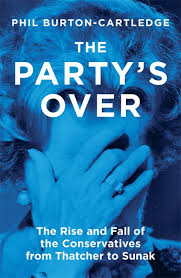
And the Tories? Phil Burton-Cartledge can justifiably say 'I told you so' until the end of his days. The Party's Over: The Rise and Fall of the Conservatives from Thatcher to Sunak was originally published as Falling Down in 2021. Back then Boris Johnson was still basking in the vain glory of his 2019 landslide and the comprehensive breaching of Labour's red wall. Few doubted, certainly not the salaried commentariat, Labour was in dire straits and the Tories set for umpteen more years in power. Phil did doubt, uniquely revealing the underlying trends that would lead not so much as Labour winning in 2024 as the Tories losing.

If Labour is to turn 2024 into the basis of a victory that lasts more than anything it must transform an unequal Britain. Polly Toynbee's writing exposing inequality is all the more effective coming as it does not from the oppositional left. Instead she makes a constructive yet not uncritical case why Labour must place the necessity of this transformation at the very centre of politics, gently egging Labour on both to recognise this and act upon. Her latest book, with co-author David Walker, The Only Way is Up : How to Take Britain from Austerity to Prosperity should be essential reading for every Labour MP, adviser and campaigner not only with an eye on winning again in 2029 but why it would deserve to do so.
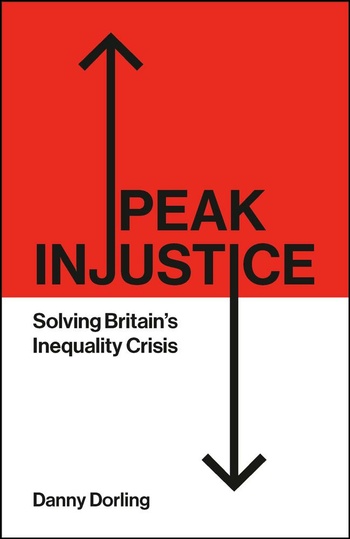
By some considerable distance Danny Dorling is not only the most compelling author on inequality but the most prolific too. In 2023 Danny's Shattered Nation: Inequality and the Geography of a Failing State provided a survey of poverty's impact across all points of Britain, north, south, east and west. A kind of Road to Wigan Pier, with the statistics. Then earlier this year his Seven Children: Inequality and Britain’s Next Generation added a biographical dimension of children's lives and aspirations from across the income bracket that every parent and teacher will readily recognise and any Labour government should seek to change. And now, just in time for when Labour reaches its first 100 days in goverment on 17 October Peak Injustice: Solving Britain's Inequality Crisis a primer of richly ambitious yet entirely practical policy ideas that is essential reading for anyone who wants Labour in power to fulfil its promise of 'change' with changes that rapidly affect for the better those most urgently in need of change.
Mary O'Hara's new book Austerity Bites 10 Years On : A Journey to the Sharp End of Cuts in the UK revisits the places and communities she first wrote about in her 2014 book, Austerity Bites. Since then what has another decade's worth of Tory socially-engineered desolation achieved? Read it and then ponder what Labour in the likely scenario of two terms could achieve in the next decade to reverse this unwanted legacy.
For an account of when governments fail in such a project, and instead cruelly worsen the situation of those who can least afford it The Department: How a Violent Government Bureaucracy Killed Hundreds and Hid the Evidence Disabled activists recently raised the money to deliver a free copy of this extraordinary book of investigative journalism by John Pring, himself disabled, to every one of our 650 MP's. Let's hope they not only read it but act upon it too.
The mining valleys of South Wales occupy a special place in left folklore. The 1926 General Strike, the miners who joined in their hundreds the International Brigade to fight fascism in Spain, the miners strike of 1984-85, and that's just for starters. Brad Evans puts the present, poverty-stricken plight of the valleys in the context of this uniquely heroic past. How Black Was My Valley: Poverty and Abandonment in a Post-Industrial Heartland.
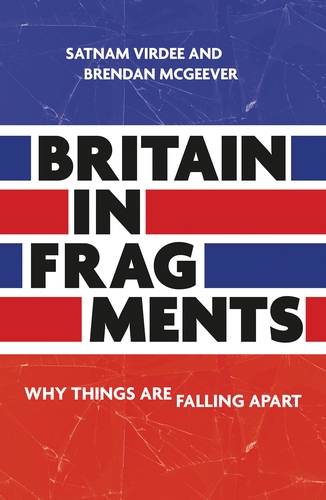
To fully understand 14 years of Tory-engineered inequality Satnam Virdee and Brendan McGeever's all-embracing account, and solutions too, Britain in Fragments: Why Things are Falling Apart is my first choice as a book to read, inform and inspire. They put this entire sorry tale of inequality, injustice and austerity into one single account every bit as much about problem-solving as problem-accounting, no easy task. They achieve it by explaining why democratic reform, the renewal of a failing welfare state, a popular anti-racism, a reinvention of class politics and recovering from the Brexit are all interlinked as solutions to a failing system.
Meanwhile Keir Starmer's in-tray is full of a host of issues each pressing for urgent, and radical, attention. In Louise Haigh, alongside Angela Rayner and Ed Miliband, Keir Starmer's cabinet has at least some breadth of ideas on 'how' though restricted of course by Cabinet rules of collective responsibility. Nevertheless, each has already spearheaded the rapid and radical implementation of policies on transport, green energy and housing.

How the Railways will Fix the Future: Rediscovering the Essential Brilliance of the Iron Road by railway engineer and RMT member Gareth Dennis sets out in expert detail the huge potential of an entirely publicly owned train system run for the benefit of serving communities and a key resistance to the rapidly emerging climate emergency. And attractively priced at just £10.99 cheaper than most currently overpriced train tickets.
For a generation of urban voters rent and landlordism is an absolutely central issue. The Rentier State: Manchester and the Making of the Neoliberal Metropolis by Isaac Rose powerfully argues why a direct, statist, challenge to the rental industry would be just about the most popular policy Labour could enact and help restore the party's increasingly fragile support in what were previously Labour's metropolitan urban heartlands. Yes, rent controls and ending no fault evictions are a welcome start but what about who owns the properties in the first place?
Will Labour make such a challenge? Grace Blakely outlines in Vulture Capitalism: Corporate Crimes, Backdoor Bailouts and the Death of Freedom both precisely why it should and won't. From housing to football clubs via high street fast food outlets to almost every part of the country's manufacturing sector our's is an economy, society even, entirely owned by global corporations. And as Grace patiently explains for the non-specialist reader the failure to challenge this salient fact is absolutely central to Labour's inability to recognise how it is neoliberalism that has afforded this takeover.

The Spanish Civil War, the Soviet crushing of the Hungarian revolution, the Vietnam War, Apartheid South Africa, Iraq, each in their different ways shaped a political generation. And each in their different ways distanced that generation from Labourism as an institution, body of ideas and vehicle for undiluted progress. In 2024 Gaza is doing the same. Despite, once again, some early moves in the right direction; the partial arms ban, restoring some humanitarian aid funding, not opposing the legality of the indictment of Netanyahu as a war criminal, for today's political generation this isn't nearly enough from any Labour government and the idea that this disconnect will pass with the passage of time a dangerous fiction. For an insight into why Gaza won't simply disappear as a cause read Gideon Levy's courageously dissenting reportage from inside Israel on both the aftermath to the horrors of 7 October and the punishment of Gaza via mass devastation and indiscriminate killing on an unimaginable scale ever since in The Killing of Gaza: Reports on a Catastrophe. And for the historical background IIan Pappe's Ten Myths about Israel is an absolutely essential read. Note, Gideon and IIan are both Israelis and Jewish, their parents fled Europe to what was then Palestine in the 1930s to escape the Nazis. Remember this when reading these two extraordinary books and the foul assertion that to be a critic of Israel and its guiding ideology, Zionism, is to be antisemitic.
Seeking to muster discontent during Labour's first 100 days will be a diverse range of political forces. Amongst the most vocal, and belligerent will be the placard-providing Far Left of a wide variety of acronyms.
The not much lamented Workers Revolutionary Party (WRP) in the 1980s had a certain political presence via its daily paper Newsline, well-funded local youth-training centres, and its most prominent members, Vanessa Redgrave and her lesser known brother Corin. Behind all this was one Gerry Healy, and when his multiple sins were finally revealed the WRP split in time honoured fashion in multiple directions, all claiming of course, to be the one and only 'true' WRP. The Party is Always Right: The Untold Story of Gerry Healy and British Trotskyism by Aidan Beatty tells this entire sorry tale in highly readable and fascinating detail.
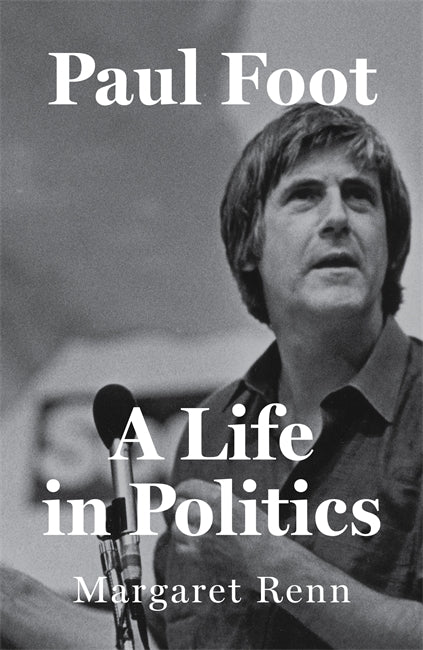
Paul Foot would have denied it vigorously via a vigorous and richly humorous polemic but as a Trotskyist and, to use the vocabulary, 'leading member', for most of his life of a Trotskyist party, in Paul's case, the Socialist Workers Party (SWP), he shared a not entirely dissimilar political disposition to Healy. But then in so many other ways they couldn't be more different. A supremely gifted writer, a dogged investigative journalist exposing injustice where he could find it, his journalism every bit at home in Private Eye, the Daily Mirror, the London Review of Books as Socialist Worker.A revolutionary who counted Shelley and Orwell as much of an influence on his politics as Lenin and Trotsky. And most of all one of the finest and funniest orators for the cause one was ever likely to hear. All this and more retold in Margaret Renn's biography Paul Foot: A Life in Politics.
As for the theorising of the Far Left, much of it I can do without, no thankyou very much. But in amongst the spurious rewrites of 1917, the 2024 version, there is a depth of thinking us lightweight reformists would do well not to dismiss. AntiCapitalist Resistance (yes really) is the stillborn descendant, many splits and versions along the way, of arguably the most creative of the 1968 crop, the International Marxist Group (IMG), best known member another brilliant writer and orator, Tariq Ali. The Resistance (no, don't laugh) have recently published Palestine and Marxism by Joseph Daher which refreshingly free of the 1917 era jargon provides a theoretical framework to understand Gaza a much wider audience than the Far Left would do well to engage with, if not entirely subscribe to.

These groups, and as the saying goes there's 57 varieties and counting, number a few hundred members each, only the SWP numbers in the few thousand. None have anything like the reach of the hero of the TV and radio station studio take-down of all things establishment, including the Labour Party establishment, RMT General Secretary Mick Lynch. Gregor Gall's Mick Lynch: The Making of a Working Class Hero meticulously analyses Mick's irresistible rise as the polar opposite to Keir Starer's rise over roughly the same period. Will Mick prove to be Keir's worst nightmare? This is my top choice of a read to gives an understanding of the most effective opposition Keir could face if his promise of change fails to deliver improvements for the many and leaves the few's wealth unscathed (to adapt a Corbynist, via Shelley, slogan). A book which gives a very good idea how Mick, and, arguably the equally combative yet more successful in terms of industrial action, Unite's Sharon Graham, might be key figures to shape precisely this kind of opposition.

Not that a resurgent, and campaigning trade unionism will be sufficient, not by a long way. There is a now a deeply rooted tradition of social movement organising that absolutely must be part, parcel and central to any movement committed to ensuring we receive the very best this Labour government can deliver. That tradition in many ways has its roots in 1970s second wave feminism, the interaction of socialism and feminism epitomised by the publication in 1979 of the path breaking Beyond the Fragments co-authored by Sheila Rowbotham, Lynne Segal and Hilary Wainwright. Sheila revisits the immediate political aftermath of the book's publication in her latest memoir Reasons to Rebel: My Memories of the 1980s a beautifully written reminder for those who were there for the early years of Thatcherism. A brilliantly written social history for those who weren't.

Edited by Joshua Virasami A World Without Racism: Building Antiracist Futures helps us to understand the very welcome fact that in the 2000's antiracism has become every bit as much an irresistible force of change as feminism became in the 1970s, most recently via the huge global response to the Black Lives Matter movement. Joshua has expertly curated a wide range of contributions including on solidarity and internationalism, antiracist tenants movements and organising as migrants that help portray the depth of this welcome shift.

Perhaps what this great movement of a broad church Labour, outside left, trade unions, social movements needs most of all instead of a thought-out plan of action is a banner to rally behind. And fortunately rescued from 'modernisation' and dusted down all ready to go we have one. Red Threads: A History of the People's Flag is a book like no other, Henry Bell's absolutely fascinating history of the Red Flag. C'mon as the song goes, raise the scarlet standard high!
Mmm, maybe even with a techno remix not quite the dance number to get down with Gen Z. Brat? I hardly think so. But at least the thought was there. Or as the anarcho-feminist Emma Goldman famously put it, " If I can't dance, it's not my revolution." Amen to that, well without the anarchism, obviously. No fun, no thanks,
Toby Manning's Mixing Pop and Politics: A Marxist History of Popular Music disavows all this. OK I'll admit 'A Marxist history' doesn't exactly overflow with the pleasure principle I was looking for in a sub-title but stick with it. Over 500 plus pages a soundtrack ranging from doo-wop, soul and psychedelia to glam, punk, rap and grunge had me crying out for more.
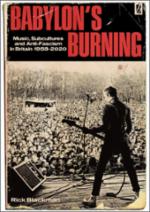
The moment this idea ,a guilt-free pleasure in enjoying ourselves as how we 'do' our politics rather than the elevation of a privileged 'activist class' first, and forever after, made sense to me was in Victoria Park, Hackney, Sunday 30 April 1978. The Clash, Tom Robinson Band, Steel Pulse, X-Ray Spex, the first Rock against Racism Carnival. Bablyon's Burning: Music,Subcultures and Anti-Fascism 1958-2020 by Rick Blackman helpfully provides a richly researched hisory of a clash of culture, rebel music and protest politics as an opposition from the 1958 Notting Hill race riots to the rising tide of anti-immigration racism of the current decade.

Topping my hit parade for reading on the subject of how pop 'n politics makes has the potential to make such a rich mix Joe Mulhall's Rebel Sounds: Music as Resistance. Best known as a writer and researcher on modern-day fascism there couldn't be a better author to write a counterfactual account of an anti-fascism, and anti a whole lot more too that is rotten in our society, as musical resistance. Global in reach too, Irish rebel songs, the soulful background music to America's civil rights movement, underground gigs in the old Eastern Europe behind the Berlin Wall, the township rhythms that belted out a soundtrack to the toppling of Apartheid South Africa. Joe recounts a politics that looks as good on the dancefloor as on the march.
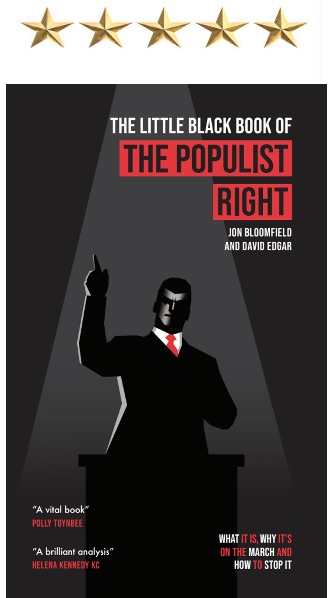
And to complete this reading guide my five star choice for the most essential book to read as Keir Starmer's government heads towards its first 100 days in office? Just 120 pages, easy enough to digest in a single day's reading yet couldn't be more necessary, and urgent, to do so. The Little Black Book of the Populist Right: What it is Why it's on the March and How to Stop it by Jon Bloomfield and David Edgar. Those involved in the August race riots have been clamped down upon, but neither the very real social problems that at least in part sparked the anger behind them nor the racism that used this as a reason to violently lash out at asylum seekers, immigrants and Muslims have gone away. Both the Populist Right and Far Right will be doing their worst to keep this anger at inequality and austerity entirely within a racist narrative. And across Europe it's no better, rather considerably worse: Germany, France, Italy, the Netherlands and in America, Trump. This short but brilliant book is both a road map to the nightmarish future which Labour missteps through these first 100 days could produce and a vital guide to why we don't necessarily have to end up with such a sorry ending by 2029. Read and resist.

The one and only original Keir T-shirt available from here
Note No links in this review are to Amazon. If you can avoid purchasing these books from a site that tax dodges and exploits its workers, please do.
Mark Perryman is currently working on a new book The Starmer Symptom to be published by Pluto in autumn 2025. Co-founder of Philosophy Football, Mark's previous books include The Blair Agenda and The Corbyn Effect.
Straight out of Tadworth,Surrey
31.08.24
With a Rock against Racism relaunch being planned Mark Perryman remembers being there the first time around
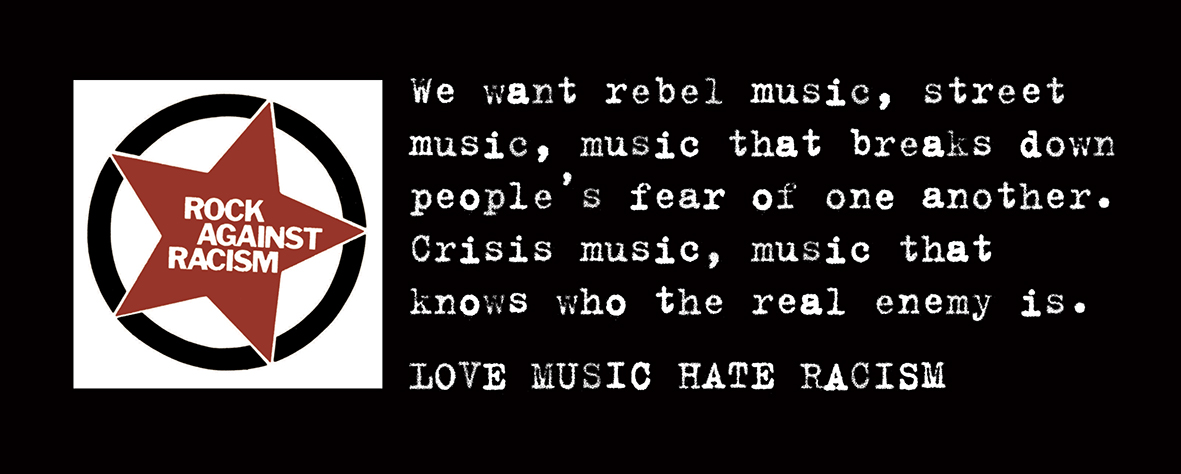
In the wake of this summer's racist riots a 'relaunch' of Rock against Racism by the campaign Love Music Hate Racism is being planned. Great news for those of us who were schoolkids against the nazis the first time around. But without getting all dialectically correct its vital to understand the conditions that made RAR such a rip-it-all-up and start again success back then and ask ourselves what would make it work now almost half a century later and scarcely nothing the like of it in-between.
I can still remember the day as if it was yesterday, Sunday 30 April 1978. Me, Jeremy Turner, Ashley Stark, Deborah Tween in the Surrey commuter belt village of Tadworth. It was early, we had a bus to catch, then the Northern Line from its southernmost tip, Morden, before a couple of changes to Bethnal Green. Off we got, me with A-Z in hand, to pick our way through unfamiliar surroundings to what we realised was the wrong end of Victoria Park. A boating lake? Surely this wasn’t the place for a Carnival. But then we saw it, a huge, if rather ramshackle stage, with people pouring into the area in front of it from every direction. We’d arrived.
No, we hadn’t gone on the march. I was in the Upper Sixth at the local comprehensive, De Burgh, the others from the year below me. We were musos, every week we devoured the New Musical Express which with a rather brilliant mix of the political and the cultural had been carrying news of the growth of Rock against Racism, known to everyone as ‘RAR’ alongside breathlessly enthusiastic reporting of the emergence of punk, the two of course weren’t un-related. Meantime on the news the National Front, NF, were kicking their way into the headlines. Every march a violent confrontation between them and the recently formed Anti-Nazi League, ANL. This was horrible, these were Nazis isn’t that what our parents and grandparents fought to defeat?
The others were there more or less for the music and the urban adventure. What a line-up, and it was free. But we were nervous too, as we had picked our way through Hackney to the park we were convinced we’d be set upon by Nazi thugs round every corner. Nervous? Scared rigid in my case. So going on the march was a bit beyond the scale of our commitment and what was marching for any way? Of course when I saw that huge, joyful, powerfully surging crowd arrive all the way from Trafalgar Square with enormous paper maché heads of NF leaders John Tyndall and Martin Webster at the front I immediately regretted not joining in, and I’m not sure my political credibility has ever recovered since either.
Waiting for the music to start we wandered round the stalls. Most didn’t interest us, socialist this, revolutionary that, communist the other. It was the dayglo RAR stickers I was after and anything with that brilliant ANL arrow on too please, comrade, as I soon learned to say. Somewhere along the line I was pestered by a particularly persistent member of the Revolutionary Communist Party into buying a scarcely readable pamphlet on why Labour was an imperialist party. I think I’ve still got it, the single tract that came closest to putting me off the Left for life, sorry, comrades, was the first one I ever shelled out for. Every other word an ism or an ist, nobody any good but the followers of the one true faith, the certainty in being right unquestionable, those who were wrong risible. Blimey was this what I was getting into?
But then, thankfully, the music kicked in. There was this bloke up on stage in a boiler suit who seemed to be running proceedings but he was totally unlike any figure of authority I’d ever come across before. He was a livewire of infectious enthusiasm, he made us all, whether on stage or in the crowd, hardened politico or slightly wayward sixth-formers from Surrey feel like we belonged. Polly Styrene belting out Oh Bondage, Up Yours! helped too. I’m not sure I even knew what bondage was back then but that saxophone riff and a young woman screaming the words into the microphone was more than enough for the crowd to erupt. I’d never seen anything like it, a seething mass of intermingled bodies throwing themselves into the air seemingly without a care in the world. Except we did care. These bands were the voices of our moment, The Tom Robinson Band, The Clash, Steel Pulse, Misty and Roots, Patrik Fitzgerald. They wrote songs about what we cared about, against the NF, for the kind of place we felt Britain and the world could be but without all those isms and ists.
After Victoria Park my teenage contribution to this was pestering the ANL office for supplies of their leaflets. Up and down the roads of my Surrey village Banstead I’d go popping the leaflets though letterboxes, 'Never Again' stickers up on every bus stop. Quite what the locals thought goodness only knows. Either the place was about to be invaded by Nazi thugs or their rampaging opponents, possibly both. Still it made me feel like I was doing something. I’d been inspired. I’d become politically active, as I soon learned to describe myself.
What made RAR so special, for me at any rate, was that it was fun. There was even a RAR badge that turned NF into No Fun. They, the Nazis, were against the multicultural Britain we were becoming and behind that miserable mask of their's was something even worse, Nazism. In the late 1970s there remained a generation, like my parents, framed by the war, the Second World War. It hadn’t yet become the stuff of make-believe nostalgia and ritualised ceremony it was part of daily family lives. And so when the ANL stuck the word Nazi, deservedly so, on the racist NF we had won and the other lot lost.
And then of course we learned that you didn’t have to be a Nazi to be a racist. Wrap it up in the so-called respectability of warning against our culture being ‘swamped’, describing our nation’s borders as reaching ‘breaking point’ or predicting a community will be a ‘tinderbox’ because of immigration and its no longer Nazi, just plain nasty, and wrong.
RAR absolutely convinced me that effective collective action against all this means involving most of all those who otherwise might not think of themselves as ‘political’, not part of existing campaigns, a politics that is popular. It is a lesson too much of the Left that I've been part of ever since that first Carnival, never fails to forget. We revel instead in the cult of the activist, we privilege the most committed, the dedicated. What RAR constructed instead was a politics no longer restricted to these hardened souls but a mass movement rooted in community and locality, mixing ramshackle organisation and glorious spontaneity with the ability and imagination to pull off free carnivals that attracted tens of thousands and tours that covered pretty much the entire country. All of this was the creation of a musical generational moment, punk, with an essential reggae mix. And when RAR ended in the early 1980s 2-Tone kind of took over with the bands' line ups, music, dance moves rocking against racism writ so large we no longer needed to spell it out. And yet this summer, racist riots and a political discourse that can barely find a good word for immigration and asylum, anti-racism, multiculturalism and multifaith.
In his superb book Beating Time: Riot 'n' Race 'n' Rock 'n Roll ( out of print, to properly understand RAR beg, steal, or borrow a copy) one of the founders of Rock against Racism, David Widgery, described it as:
"A rank-and-file movement of the ordinary, the unknown and the unkempt outside of conventional politics, inspired by a mixture of socialism, punk rock and common humanity got together and organised to change things."
And you know what? Having dusted down all my nostalgia masquerading as a political strategy and finding someone far hipper to today's beat than me to delete 'punk rock' and insert the 2024 equivalent that's pretty much just the kind of movement needed if any Rock against Racism 'relaunch' is to succeed.
An earlier version of Straight out of Tadworth was originally published in Roger Huddle and Red Saunders (Eds) Reminiscences of RAR : Rocking against Racism 1976-1982
Mark Perryman is the co-founder of the self-styled 'sporting outfitters of intellectual distinction' aka Philosophy Football
The Rock against Racism 2024 T-shirt is available from Philosophy Football here

Keir gets in a Saint George's Day mix-up
23.04.24
Philosophy Football's Mark Perryman worries Keir Starmer doesn't know his England from his Britain

Keir Starmer has taken it upon himself to celebrate Saint George's Day by urging all Labour General Election candidates 'with enthusiasm.' Perhaps if Keir feels the need to 'urge' the enthusiasm of celebrating he's missing the point of celebrating Saint George.
I don't need any such instruction thank you very much. Every England home game I'm with a bunch of friends at Wembley on the morning of matchday laying out thousands of cards to form a huge fans' Saint George Cross flag. And every Euro or World Cup summer I'll be bedecked in a Saint George Cross somewhere about by person. And no, I don't need reminding 23rd April is Saint George's Day either.
Keir has backed up all this instructing by writing ahead of Saint George's Day for the Sunday Telegraph on his theme ' I have no time for those who flinch at our flag.' Well it might help if Keir could get the flag right. Throughout the piece he lists off a nation's achievements to celebrate: the home front sacrifice of 1939-45, working-class students able to go to university, creating the NHS. Magnificent achievements to be proud of as a nation, Britain, not England alone. It is the classic yet crucial slippage, England used to represent not itself but three other nations, Scotland, Wales and the North of Ireland too.
A pedant, me?
Well first off get yourself to Scotland and ask any passing Scot what they feel about England being used to represent them. Good luck with that.
And on the way back south of the border ask yourself how it feels to be in an England that is denied all manner of identifications that Scotland enjoys.
Keir's Labour party membership cards in Scotland carry the Saltire, in Wales the Welsh flag. Labour membership cards in England? The Union Jack. No wonder Keir is confused.
In Scotland and Wales Labour has its own Scottish and Welsh Labour parties, their own conference, their own leadership. In England, no such English Labour Party. And no sign in his article Keir is in favour of one.
Unlike Scotland and Wales England doesn't have a National Anthem to call our own, instead God Save the King, anthem of the United Kingdom. I know Keir is in favour of 'fiscal discipline' but here's a change that doesn't cost a penny.
Jeremy Corbyn added some substance to his very similar calls for what some Labour types label 'progressive patriotism.' Saint Andrew's, David's, George's and Patrick's days public holidays for the Scots, Welsh, English and Northern Irish. With a General Election in the offing what a trick to be missed, who's ever going to vote against an extra day off work?!
And since 1999 Scotland and Wales have a parliament, an assembly to call their own. Nothing of the sort for England, we should have, and anywhere but London too.
Most people are deeply cynical of politicians. A performative politics of this sort, adopting a position for the instant-gratification of changing the image of a party, or leader, but with no practical outcomes to effect change. All good reasons for such cynicism. A politics riddled with contradictions, that actually reproduces the problem at hand but with sufficient spin to fleetingly impress regardless. What good is that?
Keir, by the time of the next Saint George's Day not much doubt you'll be Prime Minster. No longer simply writing articles but in office, to make change. So when you fly Saint George on the 23rd April outside Number Ten just don't forget there's a nation it belongs to.
Mark Perryman's book Breaking up Britain: Four Nations after a Union is available from here
St George's Day Special Offer 20% off all Philosophy Football Saint Georges Day T-shirts quote coupon StGeorgePFN here
What's there to get hot under the England collar about?
30.03.24
Philosophy Football's Mark Perryman gets to grips with Nike v St George

"This virtue signalling, namby-pamby, pearl-clutching, woke nonsense must stop now. Any more and I'll be on the first flight to Rwanda." Lee Anderson MP
Wembley Stadium, early morning last Saturday with a bunch of friends I spent four hours laying out 7000 cards that just before kick-off for England v Brazil were held up by fans to form a huge St George Cross.
I've been doing the same for the past 26 years. So do I have a view on 'shirt-gate'. Yes, just a bit.
'Raise the Flag' started in 1998 after I went to Rome for Italy v England, a vital World Cup qualifier. A night of mayhem, Italian fans chucking everything they had at us, the Italian riot police wading in to England's end with their batons flying, not caring who they hit, and after the game (the best 0-0 I've ever seen, England had qualified for World Cup '98) we're all kept back for 2 hours with the lights off.
However just before kick off the Italian fans had held up cards to form the Italian flag. It was a magnificent sight. Which left me thinking why don't we do something like that for England? It took six months to persuade the FA but for the last home friendly before France '98 with Philosophy Football co-founder Hugh Tisdale adapting the ingenious Italian's 'mosaic' method to Wembley and thousands of England fans holding up red and white cards to form a huge St Grorge Cross Flag we finally did it. And ever since.
For me and Hugh 'Raise the Flag' has become a small business organising stadium crowd effects, mainly for football, some rugby, London 2012, the late Queen, Take That and Bruce Springsteen. But for England games we do the effect on a not-for-profit basis because it all began with us being England fans.
And for all those countless fans' St George Cross flags we've created not once have we seen the need to add a line of navy blue, indigo, purple, scarlet or brown. It's our flag so why mess with it?
But then no flag has ever been created by a fashion company.
Long ago Nike gave up being an outfit producing kit for serious sportsmen and sportswomen. That's an historic side-line, for Nike their big business today is as a fashion brand. Whether its trainers or England shirts what they're selling is fashion not something to actually play sport in. And with a football shirt design for entirely commercial reasons only lasting a maximum of two years this necessitates a new look to make a basic kit colour, a white shirt in England's case, different. Hence the multicoloured flag, and nothing to get too hot under the collar about (sic).
Rather more irksome is why change the kit every two years at all? To make money of course, and at an almighty £125 for the match replica version, £85 to be worn in the stands. That's for something that is basically a bri-nylon T-shirt, with a sell-by date of two years hence. And unless England win the World Cup wearing it, 58 years and counting, never likely to be worn again. So of course a touch of colour to the flag to make the 2024 edition of this vastly overpriced short life item is what is required to make it a tad different because this kind of thing is what the entire replica shirt business is based on.
Me, I prefer the sheer simplicity of the flag. The ways fans make it our own. Nobody forces us to hold up those cards to 'Raise the Flag' we do it because we want to, it means something to us. But best of all how fans 'deface' the flag, adding our club name and badge, pub, family and mates' names to make it truly ours.
A bri-nylon, overpriced and short shelflife England shirt? Despite following England to four World Cups, four Euros and countless away trips I've never seen the need to purchase one. Preferring (obligatory product placement) a tournament T-shirt instead from... Philosophy Football.
And as for those manufacturing all this confected rage.
Nigel Farage, Barbour jacket and corduroy trousers never ever, seen him in an England shirt, have you?
Rent-a-gob Lee Anderson, the man who boycotted England's first time since 1966 in a Tournament Final, Euro 2021, because they're now a team of the 'woke' aka they take the knee as an act of solidarity with all, including team mates, who face racist abuse or worse.
Keir Starrmer so eager to please he tells the Sun he's against the St George Cross being tampered with. This from a leader who cares so much about the St George flag he authorised Labour Party membership cards in Scotland with the Scottish Saltire on them, fine; in Wales with the Welsh Flag on them, good; but in England no St George Cross on Labour membership cards. Opportunism and hypocrisy doesn't even begin to describe this Sir Keir.
It's our flag.
It's not a fashion item.
It's not a battleground for politicians' soundbites.
And we're perfectly capable of making what we will with it ourselves. No thankyou very much.
 Philosophy Football's Lee Anderson St George Cross T-shirt is available from here
Philosophy Football's Lee Anderson St George Cross T-shirt is available from here
Mark Perryman is the co-founder of the self-styled 'sporting outfitters of intellectual distinction' aka Philosophy Football
Lee Anderson St George Cross image by Hugh Tisdale after Nike.
The Enemy Within
24.02.2
Philosophy Football's Mark Perryman digs deep to find for the 40th anniversary
of the start of the 1984-85 Miners Strike an enduring significance

Amidst the 1984-85 Miners strike eruption activist-sociologist Huw Benyon
edited a collection of reports and analyses Digging Deeper. From the coalfields’
frontline his introduction captured the mood of living through this significant
time perfectly:
“The miners’ strike of 1984-85 is a landmark in the political and economic
development of post-war Britain. In the breadth of the issues involved, and in
the drama of its action, it stands out – even to the casual observer – as a
major social and political event. In its compass it is quite staggering. Initiated
by a threat to cut capacity and jobs in the coal industry it is the first major
strike of any duration to be fought over the question of employment. Viewed
in the context of the near calamitous decline of jobs in manufacturing industry,
and the sharp rise in unemployment, the strike stands like a beacon. In the
sincerity of the people involved – women and men – as they talk about the
threat to mining villages, to ‘whole communities’ and to the futures of their
children, the strike evokes a deeply human response. Since March 1984 this
response has been forthcoming from supporters, in groups and as individuals,
throughout Britain and Europe. The yellow stickers of the NUM, 'Dig Deep for
the Miners' and 'Coal not Dole', have spread far beyond the coalfields.”
But the sad fact is the 1984-85 strike proved a landmark in all the wrong ways.
A major social and political defeat, for a trade union, for whole communities,
for an entire body of ideas of what class and solidarity means. A landmark
defeat and one we are still living with the consequences of four decades on.
Does this decry what was achieved in those 12 months? No not a bit of it, but
only if what made this strike such a special event is properly understood. The
spectacular revival of support and solidarity as a key element of Labour's, and
well beyond, organisational culture.
Doreen Massey and Hilary Wainwright's chapter in Digging Deeperargued a
key part of this revival were the Miners Support Groups. They located this
geographically, in the ‘big cities’ that shared a socio-economic situation and
commonality of culture accelerated by the impact of Thatcherism.
“A great mix of industries, including services, and a variety of jobs. Many of
those in work are on low pay, in casual occupations, working in small firms,
and in many areas levels of unionisation are low.”
And what this in part produced as a city’s population was significant too.
“An enormously diverse population: in many cities ethnic minorities, gay and
lesbian communities, women’s groups and ‘alternative’ networks of many
kinds form an important element. The trade union movement is also different
from that in the coalfields. Here its very industrial variety has been the basis
for a tradition of local links and networks. Public sector and white-collar unions
are specially important.”
And they were quite clear that this difference had strengthened rather than
weakened the support for what they called in contrast ‘Coalfield Labourism’:
“It is often anarchistic, socially adventurous, with a commitment to politics
outside the workplace as well as within.”
In London, Merseyside, Southampton, Cardiff, Manchester,York, Glasgow,
Edinburgh, basically everywhere, something stirred in the course of twelve
months. Nor was this limited solely to these ‘big cities’ it stretched also to the
kind of places where hitherto the main opposition to the Tories, or
'Thatcherland’ as they dubbed this huge swathe of England, wasn’t Labour but
the SDP-Liberal Alliance. Cambridge, St Albans, Milton Keynes and Somerset
for starters.
What was it that caused this surge that had been so absent in Labour’s General
Election campaign of ’83? Resonance, a common cause, finding allies, the
forms of organisation adopted, local initiatives as part of a loose yet national
response, the practical focus of collecting food, the emotional impact of
delivering that food, the many ways all of this created what Doreen and Hilary
rather neatly named a politics of 'preaching to the unconverted'..
Perhaps understandably caught up in the moment they concluded with what
proved to be more than a degree or two of over-confidence in what would
follow:
“Labour movement politics will never be the same again.”
The past 40 years have proved, over and over again, how difficult a process
achieving change on the scale, they optimistically imagined had already
happened, actually is. But their conclusion helps us understand why it still
remains worth trying.
“It is not a question of either industrial action or the new social movements,
nor is it one of just adding the two together. What is important is a recognition
of a mutual dependence and a new openness to influence, of the one upon the
other.”
True then, true today and that is what made it worth being an 'Enemy Within'
then and now.
 The Philosophy Football 40th anniversary Enemy Within T-shirt is available from here
The Philosophy Football 40th anniversary Enemy Within T-shirt is available from here
Mark Perryman is the co-founder of the self-styled 'sporting outfitters of intellectual distinction' aka Philosophy Football
Don't Tell Him, Pike!
10.02.24
Mark Perryman argues Dad's Army was the most popular Popular front of all

U-Boat Captain Your name will go on the list! Vot is it?
Mainwaring Don't tell him, Pike!
It's nigh on impossible to read those words and not summon up a smile. A smile of remembrance too with this week the last surviving member of the Dad's Army cast, Ian Lavender, aka Private Pike, passing away.
The very first appearance of Private Pike and the rest of the Walmington-on-Sea volunteers featured Lance Corporal Jones the butcher sabotaging any threat of a Nazi invasion by reversing the road signs ‘To the town’ and ‘To the sea’. The result was obvious, a local motorcyclist stops, takes now the wrong turning and off camera there is a loud splash. A comedy classic has begun. It is easy to mock but a decisive connection is made via Dad’s Army with the Popular Front against Nazism which is ever-present amongst all the English slapstick humour. The Bank Manager, his hard-pressed Chief Cashier and the most junior of junior cashiers, the butcher, the miserabilist undertaker who is an English coastline economic migrant from Scotland, the pensioner, the local ducker and diver, the vicar, the verger and their precious Church Hall, the busybody greengrocer. What brought them all together? The defence of Britain and all it meant to them from all that they feared Nazi rule would do in the name of hate. Only a few years previously Oswald Mosley and his British Union of Fascists were being cheered on by the Daily Mail ‘Hurrah for the Blackshirts’. Despite the best efforts of the stalwarts of Cable Street even in the autumn of 1939 after the declaration of war Mosley was still able to attract crowds to his ‘peace rallies’ numbering in their thousands. The mood of appeasement remained ever-present spearheaded by the Tories’ Foreign Secretary, Lord Halifax. The middle-class, and very English, pomposity of Captain Mainwaring of 1940 is too easily confused with the nasty populism of Farage and his like but this is to seriously misunderstand and misrepresent what Walmington-on-Sea’s finest were all about.
These were ordinary men (women, apart from Mrs Pike and Mrs Fox are almost entirely absent) doing extraordinary things and in the course of this reinventing what Britain could become. The selfless sacrifice of Mainwaring’s volunteers in the face of a Nazi Blitzkrieg that to date had laid waste to all resistance in its path is remarkable. In 1941 Hitler would launch Operation Barbarossa and do the same to any resistance in his way on the Eastern Front, until Stalingrad started the turning of the tide of course. The sacrifice is obvious in every episode, the heroism perhaps less so, although when a washed-up U-Boat Commander tries to take over their seaside town Mainwaring’s epic instruction when the Nazi demand his young private’s name ‘Don’t tell him, Pike’ creates perhaps the show’s funniest moment of all. Never mind, the fierce and heroic resistance is obvious in Mainwaring’s voice and puffed-up chest, no fascist was going to push old blighty around.
Of course class divisions remain within the platoon, as they did right across the war effort. Although it is the public-school educated Sergeant Wilson who invariably loses out in the battle of will and leadership with the grammar-school educated Captain Mainwaring. It is however on the ideological front that in the fictionalised Walmington-on-Sea and the real Britain of 1939-45 that a battle was being fought, and won. A popular mood of co-operation, the common anti-fascist cause and a wide recognition that a society led by and benefitting solely those most used to being in charge was no way to win either the war, or the peace. All of this created the basis for Labour’s 1945 landslide including the election of two Communist Party MPs, and the electoral defeat of Churchill’s Tory Party. We’ll never know whether the Walmington-on-Sea constituency went Labour, countless similar seats certainly did, but we can be sure that for at least a time the town wasn’t the place it was pre-1939.
There is a danger that in dismissing the cult of nostalgia that Dad’s Army represented, then and now, that we also lose the meaning of the 1940 moment. How Mainwaring, Wilson, Jones, Frazer, Godfrey Pike and Walker in their own way were the most popular Popular Front of them all.
But a near-constant harking back to World War Two has created a peculiar version of English patriotism. The politics of anti-fascism are airbrushed out. The Labour victory in ‘45 despite Churchill’s wartime leadership scarcely mentioned. The Battle of Britain reduced to a football chant ‘Ten German Bombers and the RAF from England shot them down’ what kind of tribute borne out of ignorance is that? The RAF was never 'from England' and in this most heroic of its battles alongside Scots, Welsh and Northern Irish, pilots and aircrew from Poland, Czechoslovakia, Aussies, Canadians, South Africans and more.
Thus World War Two memorialising has become translated into a petty anti-Europeanism framed by a resentment at France or most particularly Germany but not Britain being the dominant forces in European politics. Dad’s Army gives us an alternative model. Unlike that other long-running BBC comedy set in World War Two Allo Allo the Germans rarely make an appearance and thus their hateful fascism is never trivialised or turned into a misjudged excuse for a laugh. Mainwaring’s platoon are hopelessly funny but never a joke. The opening credits spelt out what was at stake in 1940, Britain versus the swastika making its mark across Europe. This was an anti-nazi war not England vs Germany of ’66 vintage and since.
Dad’s Army was broadcast for 9 years, 1968-1977. Its ending pre-dates the rise and triumph of Thatcherism. It was under Thatcher that Europhobia, or more accurately Germanophobia, came to define the Tory Right and would eventually create the basis for UKIP’s growth too. Given Farage's heartland support lies in England’s left behind coastal towns, he's considering standing in Clacton apparently, it is too easy to rewrite Walmington-on-Sea’s Mainwaring as Thatcher, or Farage, incarnate. But no, rather this was a platoon of community, common cause and if called-upon no little courage. 'Don't tell him, Pike!' Hilariously funny but words too of resistance against the Nazis. You have been watching? The people vs fascism.
Philosophy Football's Don't Tell Him, Pike! T-shirt is available from here

Mark Perryman is the co-founder of Philosophy Football Don't tell him, Pike design Hugh Tisdale co-founder Philosophy Football
- And then there were two
01.03.25 - This Land is (still) Your Land
22.02.25 - Happy 80th Birthday Bob Marley
01.02.25

